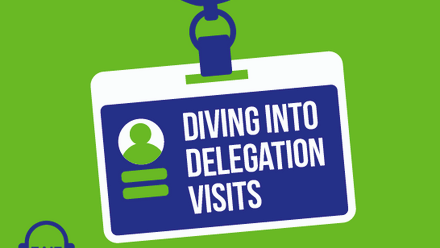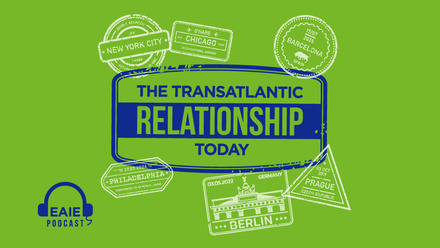Collaborating with African universities through European University alliances

European University alliances share an ambitious agenda of integrating European higher education through long-term, structural collaboration among member institutions. In addition, several of the now 44 alliances have started to reach out to non-European partners, some specifically to African universities, thus potentially giving substance to the European Commission’s claim that "deepening cooperation among European institutions […] goes hand in hand with consolidating their global dimension".
But why enter such partnerships, given the already challenging task of alliances to foster integration among their own member institutions? How is it possible to build such a partner network? What could alliances exploring the idea of such partnerships learn from existing examples? We provide a few answers to these questions based on our experience with partnerships between African institutions and the European University alliances ATHENA and CIVIS.
Benefits for African-European science cooperation and participating universities
The benefits of these partnerships – both existing and potential – are manifold: at the level of African-European science cooperation, for instance, the networks can facilitate research, education and outreach activities on joint global challenges, for which a merely European or African perspective appears too narrow. Addressing global challenges as climate change or health is also a high priority for the European Universities Initiative, to which such partnerships thus directly contribute.
European University alliances with non-European partners can be a concrete transmission belt for bringing in a global partnership perspective
Moreover, the European Higher Education and Research Areas are supposed to have global significance, while European University alliances count as important instruments for their development. Hence, European University alliances with non-European partners can be a concrete transmission belt for bringing in a global partnership perspective in this process.
In more practical terms, a partner network has the strong potential to create synergies in capacity strengthening or sharing and facilitate joint fundraising by international applicant consortia involving European and African partners.
At the level of participating institutions themselves, African partner universities can build close relations to several universities across Europe in one fell swoop, whereas European institutions have the equal chance to widen their African partner network through their alliance.
Thematic or institutional focus: different points of departure in forming a partner network
How is it then possible to build such partnerships? ATHENA and CIVIS provide examples for two very different takes on this question.
ATHENA followed a theme-oriented, project-based approach in its partnership development by building on a pre-existing collaboration between two universities. The University of Siegen and the Polytechnic of Porto both participated in the 2019 annual conference of the Africa-based ‘Regional Universities Forum for Capacity Building in Agriculture‘ (RUFORUM), involving 147 universities across the continent. There they presented several of their joint activities, among them a blended mobility course in which multidisciplinary international teams of students solve a concrete challenge faced by a company. This project attracted considerable interest among RUFORUM members, which led to some of them participating. When ATHENA was founded in 2020, it built on this existing cooperation with RUFORUM. Both networks developed an ambitious plan for deeper cooperation, which eventually led to the signing of a memorandum of understanding between ATHENA and RUFORUM in October 2022.
CIVIS followed a more institution-oriented approach due to its constitutive objective to enter comprehensive, long-term strategic partnerships with a smaller set of African partner universities. To begin with, the alliance undertook a comprehensive survey of existing bilateral partnerships of its members with African institutions. In doing so, it looked for potential partners with a high scientific profile in CIVIS’ five thematic focus areas, with existing links to several CIVIS member universities, and with similar commitments to promoting a socially engaged academy. This resulted in finding and approaching six partners from different African regions, after which the alliance launched several small-scale pilot projects. In parallel, a common strategic partnership agreement was drafted. This process, as well as a larger opening conference involving the leadership of all CIVIS member and partner universities, was instrumental for creating joint visions and objectives, on which concrete collaboration will now build.
Practical advice
Despite these different approaches to building partnerships, they provide some general lessons for other European University alliances exploring collaboration with African partners.
1. Consider making use of existing partnerships: Network initiatives (partially) built on previous, bilateral cooperations between individual network members can benefit from established contacts, communication channels, and an existing level of mutual trust.
2. Reflect (on) African diversity: Just as Europe, Africa is not a single unit: regions and countries differ. A meaningful ‘African’ partnership dimension should mirror this in a regional balance of partners, or deal in other ways with the social, political and cultural diversity of the continent.
3. Go beyond rankings: Notwithstanding In defense of rankings and Ellen Hazelkorn: The plusses and minuses of university rankings their general use and meaning in contemporary higher education, university rankings should not be the only or principal guide in the search for partners. Fewer than 10 African universities appear in the top 500 of any rankings list, and such a focus may narrow the list of potential partners to the same small set of African universities. Allowing for more diversity in partnerships also helps to strengthen overall research and innovation capacities through in African-European cooperations.
4. Acknowledge and jointly address the needs and interests of African partners through partnerships: Those may differ across institutions, countries and regions, but some are recurrent, eg the interest in joint research-training opportunities at the PhD and Postdoc level, given the objective to strengthen research capacities in Africa; the interest in student mobility, eg through joint Master’s programmes; or opportunities for larger joint grant applications.
5. In turn, do not assume that African partners have nothing to bring to the table: Consider, for instance, the strengths and experiences in challenge-based education and research on local issues, often involving social stakeholders, on which the joint search for solutions to joint global problems can build.
Building equal partnerships in an unequal world
Indeed, this last point should serve as a reminder that the place of Africa in European scientific strategies has long been that of a research laboratory rather than a research partner. Fortunately, this has given room to the widespread conviction in higher education policy and practice that we need to build equal partnerships in an unequal world – not (only) for ethical, but also for very practical reasons – if we are interested in sustainable, productive science collaborations which aim to make a difference.
The European Universities Initiative boosts the formation of university alliances in Europe, engaging hundreds of institutions in new, truly collective multilateral activities and decision-making processes across countries and social diversity. If widened to African or global partnerships, the momentum of this experience could significantly contribute to further developing such an approach.






